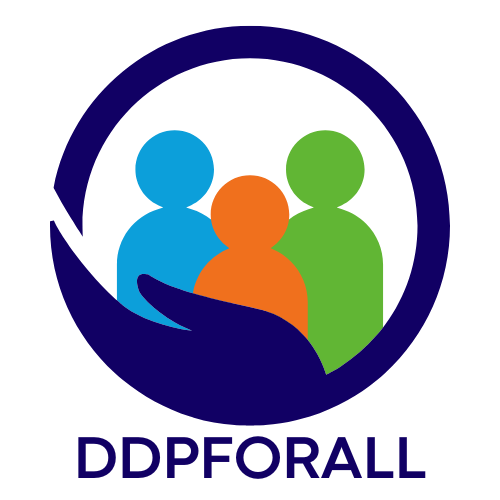Table of Contents
ToggleIn a world where emojis often replace words, the art of reading and literacy is more crucial than ever. Imagine wielding the power to transform lives through the written word. A doctorate in reading and literacy isn’t just a fancy title; it’s a golden ticket to becoming a literacy superhero. With this advanced degree, one can dive deep into the intricacies of language, learning, and the magic of storytelling.
But hold on—this journey isn’t just for the bookworms or the grammar police. It’s for anyone ready to tackle the challenges of literacy in today’s fast-paced, tech-driven society. Whether it’s helping struggling readers or shaping future educators, this degree opens doors to a world of opportunities. So, grab your cape (or at least your favorite mug of coffee) and explore how a doctorate in reading and literacy can elevate not just careers but entire communities.
Overview of Doctorate in Reading and Literacy
A doctorate in reading and literacy equips individuals with in-depth knowledge and skills to tackle literacy challenges. This advanced degree empowers graduates to influence educational practices and enhance literacy development across various contexts.
Importance of Literacy Education
Literacy education significantly shapes an individual’s ability to interact with the world. It promotes critical thinking, effective communication, and lifelong learning. As digital communication evolves, strong literacy skills remain essential. Educators equipped with advanced degrees can develop innovative strategies that address current literacy issues. Comprehensive literacy initiatives lead to improved academic performance and greater social equity. In communities where literacy rates are low, dedicated professionals make a transformative impact by fostering reading habits and encouraging engagement with text.
Career Opportunities with a Doctorate
A doctorate in reading and literacy opens diverse career paths. Graduates can become university professors, leading research in literacy education. Positions such as literacy coaches offer opportunities to support teachers with practical strategies. Roles in educational policy and administration allow experts to shape literacy programs at the district or state level. Nonprofits focused on literacy often seek individuals with advanced knowledge to design effective initiatives. Consultants can provide valuable insights and training to schools and organizations. Additionally, many graduates contribute to curriculum development, improving resources available for reading instruction.
Curriculum and Coursework

A doctorate in reading and literacy encompasses a well-rounded curriculum designed to prepare graduates for diverse educational roles. This program typically includes core and elective courses that provide essential knowledge and practical skills.
Core Courses
Core courses form the foundation of the program. These courses often cover topics like literacy theory, research methodologies, and instructional strategies. Students engage in advanced studies on reading processes, examining how individuals acquire reading skills. Additionally, coursework includes assessments of literacy instruction and development. Professors guide in-depth discussions about contemporary literacy issues. Practicum experiences enhance learning by allowing students to apply theories in real-world settings.
Elective Courses
Elective courses offer flexibility, allowing students to tailor their studies. Popular options frequently involve specialized topics like digital literacy, multicultural literacy, and literacy coaching. Programs encourage exploration of interdisciplinary connections, including psychology and technology. Engaging in these subjects broadens a student’s understanding of diverse literacy needs. Graduate research projects often emerge from these electives, prompting innovation in educational practices. Networking opportunities may also arise through collaborative projects, connecting students with industry professionals.
Research Opportunities
Research opportunities in a doctorate in reading and literacy are vast and diverse. Graduates explore numerous avenues that significantly contribute to the field of literacy education.
Areas of Focus
Literacy research encompasses various areas. Individuals can concentrate on child literacy development, examining how children acquire reading skills. Adult literacy interventions represent another research focus, addressing the needs of struggling adult readers. Digital literacy, with its growing relevance, also offers fertile ground for investigation, particularly in utilizing technology to enhance reading skills. Multicultural literacy remains critical, as it explores the intersection of culture and literacy practices, helping educators address diverse learners’ needs.
Thesis vs. Dissertation
Academic requirements vary, especially between a thesis and a dissertation. A thesis typically involves a narrower research question and focuses on analyzing existing literature or data. This work often serves as a culminating project for master’s degrees. Conversely, a dissertation requires original research, contributing new knowledge to the field. This extensive document addresses complex problems in literacy education, including detailed methodology and extensive data analysis. Each plays a crucial role in advancing scholars’ understanding and expertise in reading and literacy.
Admissions Process
The admissions process for a doctorate in reading and literacy involves several key steps and requirements. Understanding these aspects ensures candidates are well-prepared for their academic journey.
Requirements
Applicants typically need a master’s degree in education, literacy, or a related field. Relevant work experience in education enhances an application. Most programs request a minimum GPA, often around 3.0 on a 4.0 scale. Additionally, candidates must submit standardized test scores, such as the GRE, though some programs may waive this requirement based on prior academic excellence. Letters of recommendation from professionals in education support the application. A personal statement outlining one’s passion for literacy education also plays a crucial role in the admissions evaluation process.
Tips for a Successful Application
Focusing on a strong personal statement proves essential for standing out. Crafting a narrative that highlights professional experiences in literacy significantly strengthens applications. Researching the specific program helps tailor the application to fit its unique offerings. Reaching out to faculty members for insights on the program may provide valuable information and connections. Ensuring that letters of recommendation come from individuals who can speak to relevant experiences adds credibility. Finally, preparing for any required interviews allows candidates to convey their commitment to advancing literacy education effectively.
Potential Challenges
Pursuing a doctorate in reading and literacy presents specific challenges that candidates must navigate. Addressing these obstacles prepares individuals for success in their educational journey.
Balancing Work and Studies
Balancing responsibilities often becomes a significant challenge for doctoral candidates. Many individuals juggle full-time jobs, family commitments, and rigorous academic demands. Effective time management plays a crucial role in navigating these competing priorities. Setting a structured schedule may help integrate study sessions and work hours, ensuring that deadlines remain manageable. Establishing a support network within academia can also provide valuable assistance, offering shared experiences and resources to mitigate stress.
Funding and Financial Aid
Securing funding poses another challenge for pursuing advanced education. Doctorate programs often come with substantial tuition costs, making financial planning essential. Various financial aid options exist, including scholarships, grants, and assistantships. Researching and applying for these opportunities can help reduce financial burdens. Additionally, some institutions offer fellowships specifically for literacy-focused studies, which may cover tuition and living expenses. Evaluating financial aid packages early in the application process allows candidates to make informed decisions about their education funding.
Pursuing a doctorate in reading and literacy opens doors to meaningful careers that can transform lives and communities. Graduates not only gain expertise in literacy education but also become advocates for effective communication and critical thinking in an ever-changing digital landscape.
By addressing current literacy challenges and implementing innovative strategies, they can significantly impact educational practices and policies. The journey may be demanding but the rewards of fostering a love for reading and enhancing literacy skills are invaluable.
For those ready to make a difference, this advanced degree offers the tools and knowledge needed to inspire the next generation of readers and educators.







